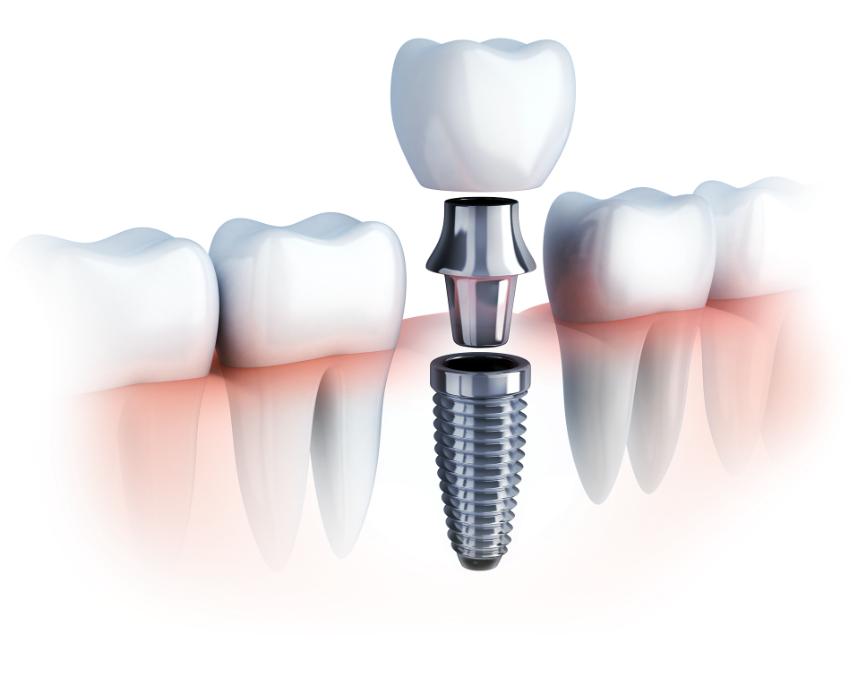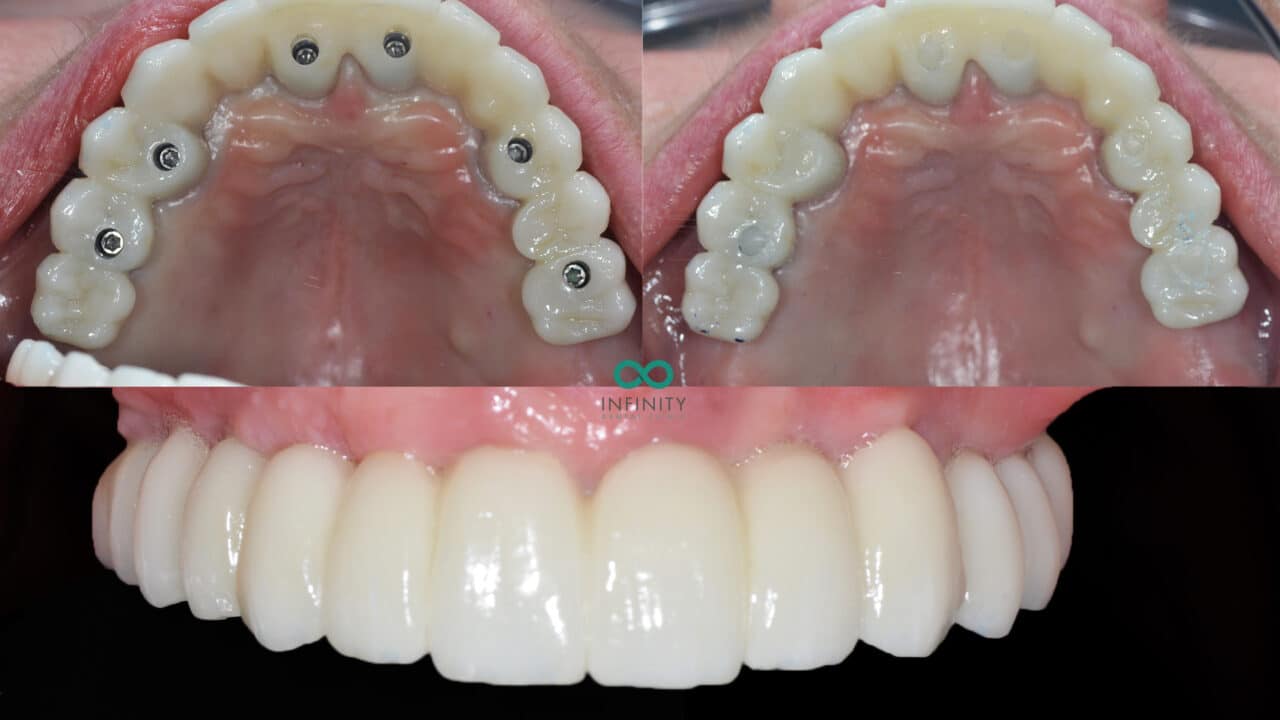Denture Dental Implants Muskegon MI - Dental Implants: A 5-step plan to restoring your teeth
Denture Dental Implants Muskegon MI - Dental Implants: A 5-step plan to restoring your teeth
Blog Article
Full Mouth Dental Implants Muskegon Heights MI - Dental Implants Surgical Placement Videos
Dental implants are more and more acknowledged as a reliable solution for tooth replacement. However, like several medical procedure, they don't appear to be infallible, and there are situations when dental implants can fail. Understanding the find this intricacies of this failure and whether or not implants can be changed is crucial for from this source anybody considering this restorative possibility.

Implant failure can happen for various causes. One widespread problem is infection, often arising from poor oral hygiene. Peri-implantitis, a particular sort of gum disease affecting the delicate and exhausting tissues surrounding the implant, can lead to vital bone loss and, ultimately, failure of the implant.
Another contributing issue is insufficient bone density. Dental Implants Near Me Muskegon Heights MI. Dental implants require a powerful foundation, and when the jawbone lacks the mandatory density or volume, reaching the wanted stability turns into difficult. In such cases, implants might not fuse correctly with the bone, increasing the chance of failure
Dental Implants Grand Rapids MI - Dental Implants Advantages
Misalignment throughout implantation can even end in problems. If an implant isn't positioned correctly, it may experience undue stress or stress when chewing. This misalignment can result in implant failure or make it more likely for the encircling teeth to undergo from wear or damage.
Lifestyle choices affect the success of dental implants as properly - Implant Dental Walker MI. Smoking is a big risk factor, as it could impede healing and enhance the probability of infections. Additionally, conditions such as uncontrolled diabetes can impair healing, further complicating the dental implant course of
When a dental implant fails, the patient's instant concern often revolves round what can be done subsequent. Fortunately, dental implants can typically get replaced if they fail. However, the process isn't as straightforward as merely placing a new implant in the same spot.
Dental Teeth Implants Muskegon MI - Multiple Tooth Dental Implants
Before changing a failed implant, a comprehensive analysis is needed to determine the underlying cause of the failure. Addressing these issues is crucial to making sure a profitable replacement. If infection was an element, the dental professional will need to clear it up, which may contain therapies for peri-implantitis or improving oral hygiene practices.
Should bone density be a problem, further procedures may be required. Bone grafting could be necessary to rebuild the jawbone, providing a sturdy basis for the model new implant. This extra procedure can add time to the overall treatment plan, but it is typically essential for long-term success.

It's additionally important to attend an appropriate amount of time after the removing of a failed implant earlier than making an attempt a replacement. This waiting period allows the encompassing tissues to heal correctly. Dental Implant And Bridges Muskegon Heights MI. Rushing this process can lead to further complications down the line, ultimately jeopardizing the success of the brand new implant
Dental Implant Walker MI - Dental Implants for Multiple Missing Teeth
Once the site has healed, and any underlying issues have been treated, the replacement of the dental implant can proceed. The means of placing a model new implant generally follows the same steps as the unique placement, with careful consideration to alignment and positioning to avoid earlier mistakes.
While most people can receive a replacement implant, there are some concerns that a dental professional must consider. For example, the patient’s general health, habits, and oral hygiene turn into more vital factors after experiencing a failure. More strong screening will often occur to make sure all potential risks are mitigated.

The success rate for replacement dental implants is mostly constructive. Many sufferers find that after addressing the explanations for the failure, their new implant integrates successfully with the jawbone and features well for years. Satisfaction levels may be quite high, provided that individuals maintain regular dental check-ups and practice good oral hygiene.
Dental Tooth Implant Muskegon Heights MI - Dental Implants - Tooth Replacement
Ongoing care plays a important function within the long-term success of dental implants. Routine cleanings and monitoring by a dental skilled assist catch potential issues before they escalate. Maintaining good oral hygiene at home, including brushing twice daily and flossing, is equally essential in ensuring the longevity of the dental implant.
Psychological impacts additionally exist when dental implants fail. Patients could expertise nervousness or disappointment, notably if they have invested money and time into the process. Addressing these emotional concerns is as important because the bodily elements of recovery and maintenance.
In conclusion, whereas failure of dental implants may be disheartening, it's possible to replace them effectively. Understanding the reasons behind the failure allows for better management and preparation for a successful replacement. As with any surgical procedure, careful planning, thorough evaluation, and devoted follow-up care are important to reaching lasting outcomes. Those contemplating dental implants should weigh the potential risks and benefits and have interaction in open conversations with their dental professionals about individual needs and concerns. Maintaining a proactive method is not going to solely optimize the probabilities for fulfillment post-replacement but may even foster larger general dental health for years to return.
Dental Implant And Bridges Norton Shores MI - Dental Implants surgery

- Dental implants can certainly be replaced in the event that they fail, often involving a multi-step course of to ensure correct therapeutic and integration of the brand new implant.
- The failure of an implant can stem from varied causes, including infection, inadequate bone density, or improper positioning during the preliminary process.
- Successful replacement sometimes begins with an intensive evaluation to determine the underlying causes for the failure and the overall health of the encircling bone and tissue.
- Prior to replacement, any existing issues corresponding to infections or remaining components of the failed implant have to be successfully addressed.
- Bone grafting could also be needed in circumstances where the jawbone has been compromised, allowing for a steady basis for the new implant.
- The timing between the elimination of a failed implant and the insertion of a brand new one can differ and is often decided by the healing process and the dentist's suggestions.
- Advances in dental expertise and techniques can improve the probabilities of profitable replacement, improving outcomes for patients who've skilled implant failure.
- Replacement implants could require adjustments to the treatment plan, especially if the unique implant's failure was due to mechanical issues or significant bone loss.
- Patients are inspired to take care of common dental check-ups and adhere to post-operative care pointers to reinforce the longevity of any new implants.
- Emotional and psychological assist may be beneficial for sufferers, especially those who feel anxious in regards to the prospect of a failed implant and its subsequent replacement.undefinedCan dental implants be replaced in the event that they fail?
What are the frequent causes for dental implant failure?undefinedDental implant failure can happen because of various factors, including infection, insufficient bone density, improper placement, or excessive stress on the implant. Understanding these causes might help prevent potential issues.
How can I tell if my dental implant has failed?undefinedSigns of dental implant failure embrace pain, swelling, unfastened implants, or infection. If you experience any of these symptoms, it's essential to seek the guidance of your dentist promptly.
Is it protected to exchange a failed dental implant?undefinedYes, replacing a failed dental implant is generally safe. However, your dentist will assess the cause of the failure and may need to address underlying points earlier than continuing with implantation.
Dental Teeth Implants Grandville MI - Dental Implants - Benefits, Types, Cost
What is the success rate of replacing a dental implant?undefinedThe success rate for changing a dental implant is just like that of the preliminary placement, typically round 90-95%, provided that proper protocols are adopted and potential issues are addressed.
How long does it take to exchange a failed dental implant?undefinedThe timeline for changing a failed dental implant can differ, nevertheless it sometimes takes a number of months from removing to placement of a new implant, allowing for therapeutic and bone preparation.
Dental Implants Cost Grand Rapids MI - How Much Do Dental Implants Cost?
Will the replacement implant really feel different?undefinedWhile some patients may discover a distinction initially, a properly placed replacement implant ought to perform like a natural tooth, with time and healing permitting it to really feel snug and stable.
Can I get another type of restoration if my implant fails?undefinedYes, alternatives such as dental bridges or dentures may be thought of if an implant fails. Your dentist will talk about the best choice based in your particular person needs and oral health.
Denture Dental Implants Walker MI - What are dental Implants?
Is bone grafting essential for replacement implants?undefinedBone grafting could also be needed if the unique implant failed due to insufficient bone density. Your dentist will consider your jawbone's condition and decide if grafting is required for a successful replacement.
How can I prevent dental implant failure in the future?undefinedMaintaining good oral hygiene, attending regular check-ups, avoiding smoking, and following your dentist's post-surgery directions can considerably reduce the risk of dental implant failure sooner or later.
Report this page